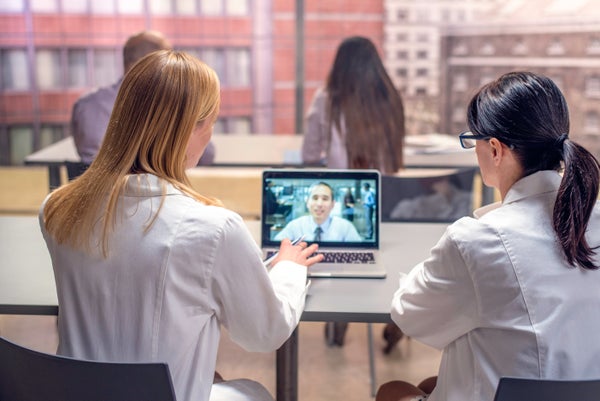This article was published in Scientific American’s former blog network and reflects the views of the author, not necessarily those of Scientific American
Last summer I received a late-night call from my cousin. Considering it was probably the second time she had ever called me instead of texting, I picked up. She was about to start her first semester of college, and the online registration period had just opened. Some inconsistencies between the codes in her prep materials and the online platform had led from frustration to panic as the available spots began to fill up. I started through a basic explanation of the registration process, but she stopped me. “What’s a registrar? Is that my advisor?” Those questions took me back 15 years to my own experience as a first-generation college student. I sat up, turned on the light, and knew right then that I would be up however late it took to finish that call. I remember what it was like to need help. And I remember the guts it took to seek it out. I remember what it was like to not even know what I don’t know.
Every step of an academic career is littered with crossings that can strand the unfamiliar. The journeys from high school to college, from college to graduate school, and from graduate school to the workforce are filled with expectations, practices, and vocabulary that no one bothers to introduce. For many, the people in our daily lives are unable to answer the questions we have - if we even know which ones to ask. But like my cousin figured out, just because the person you need is not in the neighborhood (or even the state), it doesn’t mean that they are out of reach. The internet is opening doors to what mentorship can look like, and it is shaping initiatives and programs across the academic spectrum.
One version of remote mentorship has developed as part of the Discovery 3M Young Scientist Challenge. With students sending in videos pitching their inventions from around the country, it seems like pairing each of the ten finalists with a 3M scientist would present a logistical barrier. But by starting the mentoring relationship as a remote one, finalists were able to start their work – and get comfortable with their mentors – long before they met up at headquarters for the final stage of the competition. The 2017 winner, 11-year-old Gitanjali Rao, said that she went from being nervous for her first video call to looking forward to their weekly conversations. By the time she presented her winning design, Rao felt that she could not have done it without her mentor’s guidance. Providing finalists with a remote mentor kick-started the process of going from a kid with an idea to a competitor with a prototype.
On supporting science journalism
If you're enjoying this article, consider supporting our award-winning journalism by subscribing. By purchasing a subscription you are helping to ensure the future of impactful stories about the discoveries and ideas shaping our world today.
Pioneer Academics also mentors students still in high school, but with a broader scope. The program is meant to provide motivated students with an introduction to the skills and practices associated with conducting original research – something most students would not encounter until the end of college or early graduate school. Students accepted into the program are matched with an active researcher in their area of interest, regardless of how many miles or continents might be between them. Over the months of mentoring, students work with their mentors to craft a research project they can conduct from home. This often requires some creativity on the part of the mentor. One mentor whose research into nicotine chemicals typically depends on a lab guided his students through data on the chemical’s effects and relevant regulations around the world. Each of his mentees ultimately produced an evidence-based report about whether the smoking policies and initiatives in a given country were supported by the science. Another mentor taught his students Python, enabling them to run the machines in his lab remotely with their own code. Matthew Jaskol (Founder and Program Director) and Amy Li (Founding Director, Outreach and Communications) said that the program has added curriculum over the years to aid the mentorship process – including how to talk to an academic, how to navigate an academic database, how to organize literature for later use, and even how to write up their results in an article format. A partnership with Oberlin College not only provides participants with access to academic library resources, but also transferrable course credits that follow them to college. (Pioneer Academics does have a cost to participate, but financial-need-based support is available).
But the need for mentorship hardly stops in high school. Many academic societies offer mentoring sessions at their conferences – a brief chance for undergraduates, graduates, or young researchers to meet with more senior academics. While valuable, these sessions are short-lived and not necessarily targeted to the needs or expertise of those involved. Mentoring365 seeks to bring together societies from across Earth, atmospheric, and space science and pool their resources to take mentoring opportunities year round. Remote mentoring relationships can shift from hours to months, opens doors to people with relevant expertise from far away, and give people the chance to ask questions of someone who may not be directly responsible for their career. Creating a pool of interested mentors also removes some of the barriers that might intimidate younger researchers from seeking out a such a relationship. Regardless of audience or goal, remote mentorship creates a new space for those willing to invest in the process. And with increasingly creative approaches, mentors can open doors to experiences, challenges, and even labs that might otherwise be a world away.
